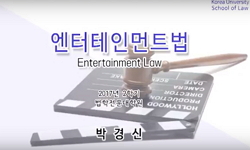본 연구는 교회법 제220조와 제1390조 2항을 중심으로 가톨릭교회가 보호하는 ‘좋은평판’의 개념을 이론적 관점에서 고찰하여 정보 공개와 투명성에 대한 사회적 요구, 언론의 관심, 가짜 ...
http://chineseinput.net/에서 pinyin(병음)방식으로 중국어를 변환할 수 있습니다.
변환된 중국어를 복사하여 사용하시면 됩니다.
- 中文 을 입력하시려면 zhongwen을 입력하시고 space를누르시면됩니다.
- 北京 을 입력하시려면 beijing을 입력하시고 space를 누르시면 됩니다.

‘좋은 평판’(bona fama)에 대한 교회법적 고찰: 교회법 제220조와 제1390조 2항을 중심으로 = A Canonical Study on ‘Good Reputation’ (bona fama): Focusing on Canon 220 and Canon 1390 §2
한글로보기https://www.riss.kr/link?id=A109683752
-
저자
송정호 (가톨릭대학교)
- 발행기관
- 학술지명
- 권호사항
-
발행연도
2025
-
작성언어
Korean
-
주제어
평판 ; 명예 ; 명예훼손죄 ; 교회법 제220조 ; 교회법 제1390조 2항. ; Reputation ; Honor ; Defamation ; Canon 220 ; Canon 1390 §2.
-
등재정보
KCI등재
-
자료형태
학술저널
- 발행기관 URL
-
수록면
205-242(38쪽)
- DOI식별코드
- 제공처
- 소장기관
-
0
상세조회 -
0
다운로드
부가정보
국문 초록 (Abstract)
제1장에서는 ‘모든 그리스도교 신자의 의무이자 권리’ 중 하나로서 ‘좋은 평판’에 대한교회법 제220조의 의미를 분석하였다. 교회법 개정 과정에서 제220조가 중요한 논의 대상이었음을 교회법전 개정위원회의 구체적인 활동을 통해 밝히고, 가톨릭교회가 보호하는‘좋은 평판’이 단순한 권리에 국한되지 않으며, 공동체적 친교(communio)의 관점에서 의무와 함께 이행되어야 함을 논의하였다. 또한, ‘평판’이라는 개념이 단순히 인간의 외적측면에만 한정되는 것이 아니라 인간의 내면적 측면까지 포함하는 개념으로 해석해야 함을 논의하였다. 제2장에서는 ‘좋은 평판’의 훼손과 그에 대한 제도적 보호를 교회법 제1390조 2항을 중심으로 연구하였다. 2021년 개정된 교회법의 형법은 ‘법적 확실성’을 보장하려 하였고, 이러한 개정 목표는 제1390조 2항의 개정을 통해서도 확인됨을 논의하였다. 또한 교회법 제220조와 제1390조 2항이 공통적으로 ‘불법적으로’(illegitime)라는 부사를 사용함으로써, ‘좋은 평판’의 훼손이 특정 조건에서 합법적으로 이루어질 수 있음을분석하였다. 그리고 ‘좋은 평판’의 불법적인 훼손의 유형을 제시하고 적용가능 한 형벌의내용들을 2021년 개정된 형법의 내용을 중심으로 고찰하였다.
본 연구는 교회법 제220조와 제1390조 2항을 중심으로 가톨릭교회가 보호하는 ‘좋은평판’의 개념을 이론적 관점에서 고찰하여 정보 공개와 투명성에 대한 사회적 요구, 언론의 관심, 가짜 뉴스 확산 등으로 인해 교회 내외에서 타인의 ‘좋은 평판’이 불법적으로훼손되는 것을 예방하는데 도움이 되고자 하였다.
제1장에서는 ‘모든 그리스도교 신자의 의무이자 권리’ 중 하나로서 ‘좋은 평판’에 대한교회법 제220조의 의미를 분석하였다. 교회법 개정 과정에서 제220조가 중요한 논의 대상이었음을 교회법전 개정위원회의 구체적인 활동을 통해 밝히고, 가톨릭교회가 보호하는‘좋은 평판’이 단순한 권리에 국한되지 않으며, 공동체적 친교(communio)의 관점에서 의무와 함께 이행되어야 함을 논의하였다. 또한, ‘평판’이라는 개념이 단순히 인간의 외적측면에만 한정되는 것이 아니라 인간의 내면적 측면까지 포함하는 개념으로 해석해야 함을 논의하였다. 제2장에서는 ‘좋은 평판’의 훼손과 그에 대한 제도적 보호를 교회법 제1390조 2항을 중심으로 연구하였다. 2021년 개정된 교회법의 형법은 ‘법적 확실성’을 보장하려 하였고, 이러한 개정 목표는 제1390조 2항의 개정을 통해서도 확인됨을 논의하였다. 또한 교회법 제220조와 제1390조 2항이 공통적으로 ‘불법적으로’(illegitime)라는 부사를 사용함으로써, ‘좋은 평판’의 훼손이 특정 조건에서 합법적으로 이루어질 수 있음을분석하였다. 그리고 ‘좋은 평판’의 불법적인 훼손의 유형을 제시하고 적용가능 한 형벌의내용들을 2021년 개정된 형법의 내용을 중심으로 고찰하였다.
다국어 초록 (Multilingual Abstract)
Chapter 1 analyzes the meaning of Canon 220, which identifies ‘good reputation’ as both a right and duty of all Christian faithful. It highlights the significant role of Canon 220 during the revision process of the Code of Canon Law, drawing on the specific activities of the Pontifical Commission for the Revision of the Code. The study argues that ‘good reputation’ is not merely an individual right but must be upheld in conjunction with communal obligations within the context of communion (communio). Furthermore, it suggests that the concept of reputation should not be limited to external perceptions but should also encompass the internal dimensions of the human person.
Chapter 2 explores the harm to ‘good reputation’ and its institutional protection, focusing on Canon 1390 §2. It discusses how the 2021 revision of the penal law in the Code of Canon Law aimed to ensure legal certainty, a goal reflected in the amendments to Canon 1390 §2. The study also examines how both Canons 220 and 1390 §2 use the adverb illegitime (unlawfully), indicating that under certain conditions, harm to ‘good reputation’ may occur lawfully. Finally, the study categorizes types of unlawful harm to ‘good reputation’ and reviews applicable penalties, focusing on the changes introduced in the 2021 revision of the penal law.
This study examines the concept of ‘good reputation’(bona fama) protected by the Catholic Church from a theoretical perspective, focusing on Canons 220 and 1390 §2 of the Code of Canon Law. It aims to contribute to the prevention of unjust harm t...
This study examines the concept of ‘good reputation’(bona fama) protected by the Catholic Church from a theoretical perspective, focusing on Canons 220 and 1390 §2 of the Code of Canon Law. It aims to contribute to the prevention of unjust harm to individuals’, ‘good reputation’ within the Church and in society, particularly in response to growing demands for transparency, media attention, and the spread of false information.
Chapter 1 analyzes the meaning of Canon 220, which identifies ‘good reputation’ as both a right and duty of all Christian faithful. It highlights the significant role of Canon 220 during the revision process of the Code of Canon Law, drawing on the specific activities of the Pontifical Commission for the Revision of the Code. The study argues that ‘good reputation’ is not merely an individual right but must be upheld in conjunction with communal obligations within the context of communion (communio). Furthermore, it suggests that the concept of reputation should not be limited to external perceptions but should also encompass the internal dimensions of the human person.
Chapter 2 explores the harm to ‘good reputation’ and its institutional protection, focusing on Canon 1390 §2. It discusses how the 2021 revision of the penal law in the Code of Canon Law aimed to ensure legal certainty, a goal reflected in the amendments to Canon 1390 §2. The study also examines how both Canons 220 and 1390 §2 use the adverb illegitime (unlawfully), indicating that under certain conditions, harm to ‘good reputation’ may occur lawfully. Finally, the study categorizes types of unlawful harm to ‘good reputation’ and reviews applicable penalties, focusing on the changes introduced in the 2021 revision of the penal law.
동일학술지(권/호) 다른 논문
-
칼 라너, ‘익명의 그리스도인’ 개념에 내포된 ‘초월적 실존’과 그 철학적 의미
- 서강대학교 서강대학교 신학연구소
- 이명곤
- 2025
- KCI등재
-
칼 라너의 후기 신학 방법론 연구: 초월적 방법과 신비에 대한 개방성
- 서강대학교 서강대학교 신학연구소
- 이규성
- 2025
- KCI등재
-
아빌라의 성녀 데레사의『아가 묵상』에 나타난 ‘거룩한 독서’에 관한 연구
- 서강대학교 서강대학교 신학연구소
- 정태영
- 2025
- KCI등재
-
- 서강대학교 서강대학교 신학연구소
- 하피터
- 2025
- KCI등재




 KCI
KCI 스콜라
스콜라







